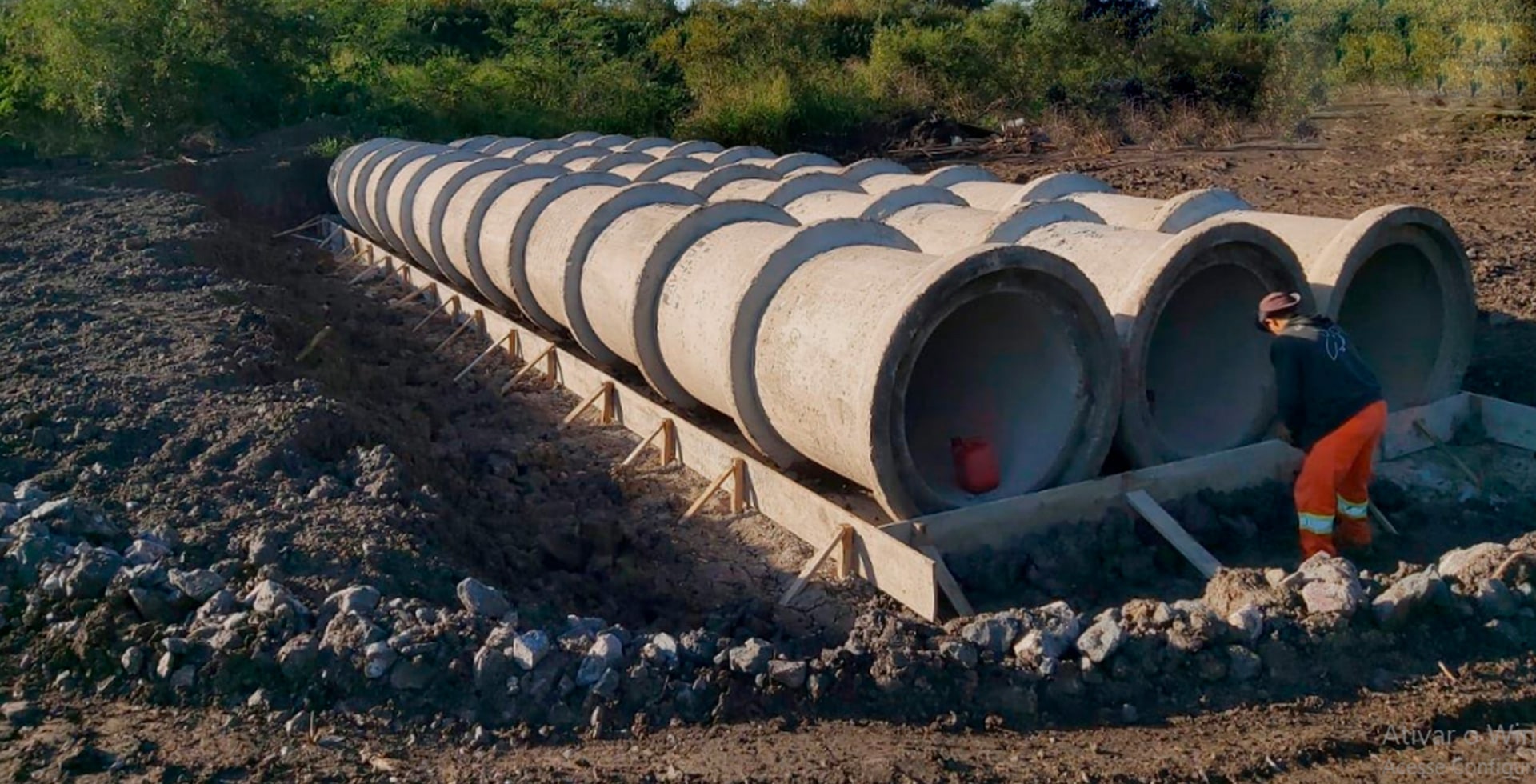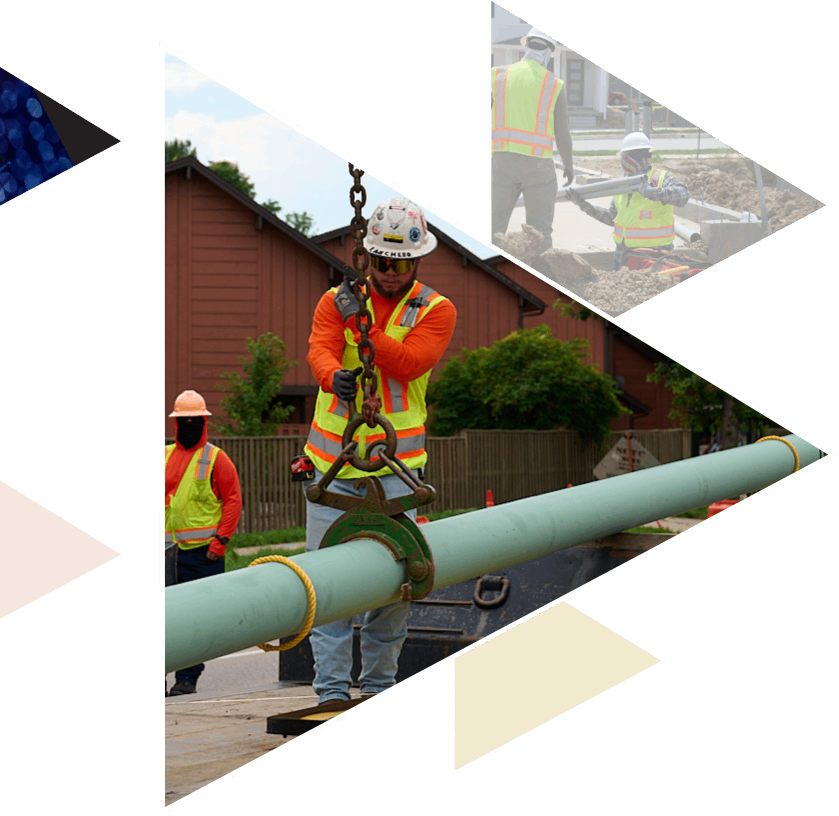The Role of Pipeline Construction Services in Modern Infrastructure
The Essential Overview to Comprehending Pipeline Construction Providers and Their Value
Pipeline Construction services are essential to the transportation of important sources such as gas, water, and oil. These solutions entail meticulous planning and execution, sticking to stringent safety and ecological standards. As the market adapts to modern-day obstacles, understanding its ramifications and elements becomes progressively important. What factors contribute to the growing relevance of these services in today's economy? The complying with sections will certainly check out these critical aspects.
Summary of Pipeline Construction Providers
Pipeline Construction solutions include a variety of tasks important for the installment and maintenance of pipelines utilized to carry various compounds, including water, oil, and gas. These solutions are essential for guaranteeing the effective and risk-free motion of resources from one place to another. The procedure generally starts with thorough planning and design, which thinks about regulative demands, environmental considerations, and logistical difficulties.
Excavation and grading of the land are carried out to prepare the site for Pipeline installment as soon as planning is full. This is complied with by the real laying of the pipes, which involves welding or joining areas together to produce a constant circulation path. After installation, rigorous testing is carried out to assure honesty and security. Upkeep services are also provided to attend to any type of problems that may develop in time. Generally, Pipeline Construction services play a critical role in sustaining facilities for power and water distribution.
Key Components of Pipeline Construction
An effective Pipeline Construction job depends on a number of essential elements that guarantee the reliable and risk-free installment of the Pipeline system. First, detailed site evaluations are crucial, as they identify the ecological and geographical elements that might affect Construction. Next, the selection of ideal materials, such as pipelines and installations, is essential for securing durability and compatibility with the transported substances.
Furthermore, progressed Construction methods, including trenchless modern technology and directional drilling, boost effectiveness and decrease ecological impact. Effective project management is an additional important part, collaborating labor, tools, and timelines to fulfill job objectives.
In addition, interaction amongst stakeholders, consisting of designers, service providers, and local authorities, guarantees positioning on project specifications and needs. Ultimately, complete top quality control actions throughout the Construction process make certain compliance with market requirements and make best use of the Pipeline's operational lifespan. Collectively, these parts create the foundation of an effective Pipeline Construction task.
Security Standards and Regulations in Pipeline Construction

Boosting Regulative bodies, such as the Occupational Safety And Security and Wellness Administration (OSHA) and the Pipeline and Hazardous Materials Safety And Security Management (PHMSA), stated particular needs that govern Construction practices. These consist of protocols for tools use, employee training, and emergency situation reaction procedures. By carrying out these criteria, Construction firms not only protect their workers however additionally secure public trust fund. Ultimately, extensive precaution add to the long-term success of Pipeline projects, ensuring they fulfill both operational and ecological assumptions.
Ecological Considerations in Pipeline Projects

Environmental factors to consider are indispensable to the planning and implementation of Pipeline jobs. These tasks have to examine possible influence on environments, water resources, and regional wild animals. Conducting comprehensive ecological influence analyses (EIAs) is crucial, allowing stakeholders to recognize and reduce dangers before Construction begins.
Securing sensitive areas, such as wetlands and habitats, frequently requires carrying out specific design features or alternative directing to lessen disturbance. Additionally, Pipeline operators are entrusted with establishing approaches for preventing leaks and spills, which can have devastating results on the environment.
Engagement with local communities is crucial, as public concerns can result in task adjustments that enhance environmental management. Conformity with regulations set by environmental agencies ensures that projects satisfy sustainability requirements, cultivating an equilibrium in between facilities requirements and ecological preservation. Eventually, dealing with environmental considerations not only safeguards nature however likewise advertises neighborhood depend on and task viability.
The Function of Innovation in Pipeline Construction
Technology plays a crucial duty in modern-day Pipeline Construction, boosting effectiveness and accuracy. Advanced evaluating techniques enable specific preparation and implementation, lessening ecological effect and project hold-ups. In addition, the combination of automation and robotics enhances operations, lowering labor expenses and improving safety on Construction websites.
Advanced Checking Techniques
Advanced evaluating techniques play an important duty in the successful implementation of Pipeline Construction jobs. These techniques leverage cutting-edge innovation to guarantee exact mapping and analysis of the surface where pipelines will be mounted. Techniques such as Geographic Information Systems (GIS), LiDAR (Light Detection and Ranging), and 3D modeling enable engineers to imagine and assess the landscape, determining prospective barriers and ecological issues. By making use of these sophisticated tools, groups can boost accuracy ready and placement, considerably reducing the risk of errors during Construction. In addition, real-time data collection enables immediate changes and notified decision-making throughout the job lifecycle. Ultimately, these evaluating innovations add to boosted performance, safety and security, and sustainability in Pipeline Construction initiatives.
Automation and Robotics

Economic Impact of Pipeline Facilities
Pipeline framework plays a necessary duty in helping with and shaping regional economic situations profession. By giving a trustworthy means of transporting oil, gas, and other assets, pipes decrease transport expenses and improve supply chain performance. This facilities attracts financial investment, boosts work production, and promotes financial development in surrounding locations.
Additionally, the Construction and upkeep of pipes add significantly to local economies, developing many job opportunity in various fields, from design to labor. The look here increase of tasks typically results in increased spending in local businesses, additionally reinforcing economic task.
Additionally, pipelines enhance power safety by guaranteeing a secure supply of sources, which is critical for commercial procedures and residential demands. As areas become adjoined with Pipeline networks, they get access to wider markets, increasing competition and economic durability. Subsequently, the financial influence of Pipeline infrastructure is complex, influencing both instant regional economic situations and more comprehensive local development.
Future Trends in Pipeline Construction Providers
The future of Pipeline Construction services is progressing in response to technical developments, governing modifications, and expanding environmental factors to consider. Advancements such as drones and robotics are simplifying inspection and maintenance procedures, boosting safety and efficiency. Automation is positioned to minimize labor prices and boost precision in Construction procedures. Additionally, the increasing emphasis on sustainability is prompting firms to embrace green materials and techniques, lining up with international efforts to reduce carbon footprints.
Regulatory structures are also adjusting to resolve ecological impacts, pushing for higher openness and liability in Pipeline projects. In addition, the combination of clever technologies, including real-time tracking systems, is anticipated to boost the integrity and performance of Pipeline networks. As energy demands change toward sustainable resources, Pipeline Construction solutions will likely see a rise in jobs connected to biofuels and hydrogen transportation. Overall, these trends indicate a transformative duration for the Pipeline Construction sector, concentrated on innovation and sustainability.
Regularly Asked Questions
What Kinds of Pipelines Are Commonly Constructed?
Different kinds of pipelines are frequently constructed, including oil, water, gas, and sewer pipelines - Pipeline Construction Services. Each serves distinctive purposes, promoting the transport of crucial resources throughout regions while sticking to security and ecological guidelines
How much time Does a Normal Pipeline Job Take?
The period of a common Pipeline task varies substantially, typically ranging from numerous months to a couple of years. Factors influencing this timeline include task complexity, regulative authorizations, and ecological considerations that should be attended to.
Who Regulates Pipeline Construction Companies?
Pipeline Construction business are regulated by numerous government, state, and regional companies, consisting of the Pipeline and link Hazardous Products Safety Management (PHMSA) and state public utility compensations, ensuring conformity with safety and environmental standards throughout the Construction process.
What Prevail Materials Used in Pipeline Construction?
Typical products used in Pipeline Construction consist of steel, polyethylene, and PVC. Each product supplies distinct benefits such as versatility, resilience, and resistance to rust, making them ideal for numerous applications in transporting gases and liquids.

Exactly How Are Pipeline Construction Costs Approximated?
Pipeline Construction prices are estimated by examining aspects such as product expenditures, labor rates, job intricacy, environmental considerations, and regulatory demands (Pipeline Construction Services). Accurate expense estimation warranties reliable budgeting and task preparation throughout the Construction process
Pipeline Construction services incorporate an array of activities essential for the installation and maintenance of pipelines used to deliver different substances, consisting of gas, oil, and water. A successful Pipeline Construction job counts on a number of crucial parts that guarantee the reliable and safe installation of the Pipeline system. Advanced checking techniques play an essential duty in the effective execution of Pipeline Construction jobs. Various types of pipes are frequently built, including oil, gas, sewage, and water pipes. Pipeline Construction prices are approximated by examining aspects such as material expenditures, labor prices, project intricacy, ecological factors to consider, and regulatory demands.